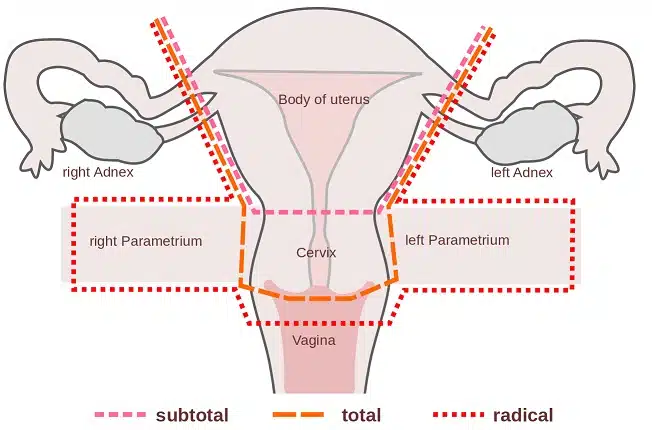hysterectomy cost A hysterectomy is an operation to remove a woman’s uterus. A woman may have a hysterectomy for different reasons, including:
- Uterine fibroids that cause pain, bleeding, or other problems
- Uterine prolapse, which is a sliding of the uterus from its normal position into the vaginal canal
- Cancer of the uterus, cervix, or ovaries
- Endometriosis
- Abnormal vaginal bleeding
- Chronic pelvic pain
- Adenomyosis, or a thickening of the uterus
Hysterectomy for noncancerous reasons is usually considered only after all other treatment approaches have been tried without success.
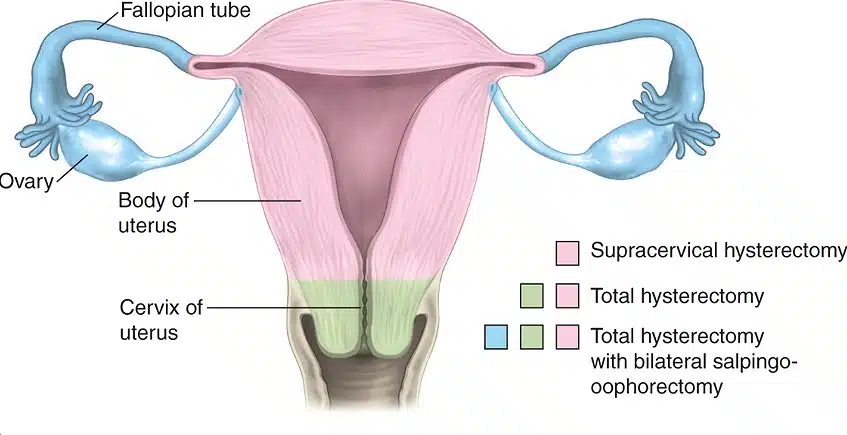
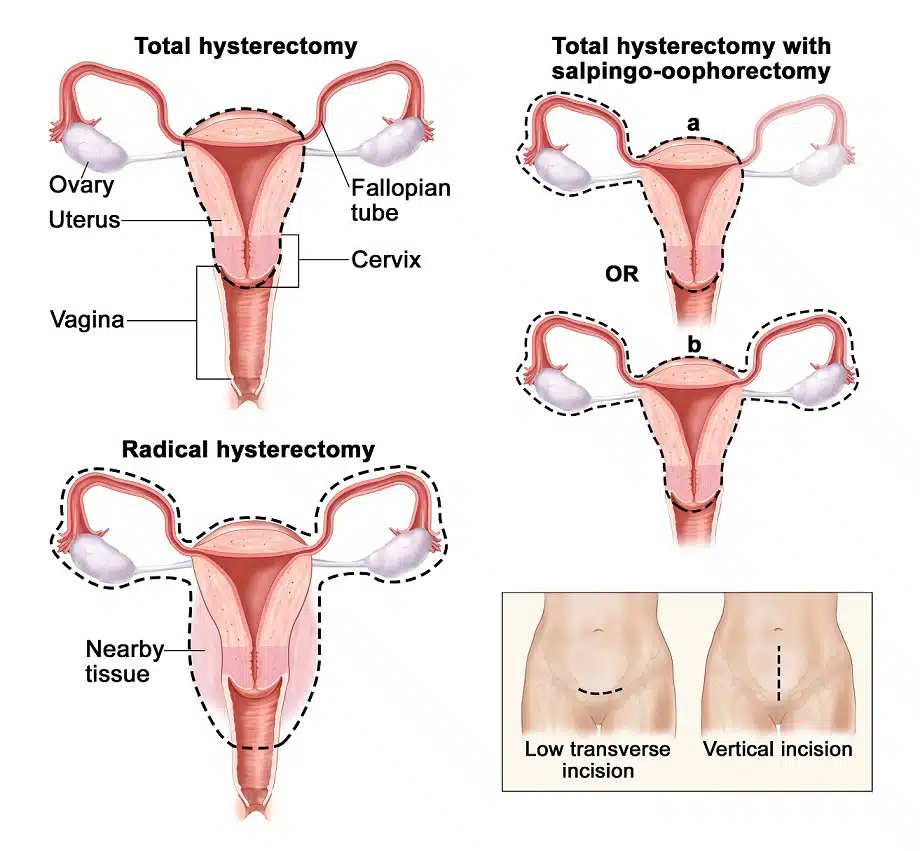
Types of Hysterectomy
Depending on the reason for the hysterectomy, a surgeon may choose to remove all or only part of the uterus. Patients and health care providers sometimes use these terms inexactly, so it is important to clarify if the cervix and/or ovaries are removed:
- In a supracervical or subtotal hysterectomy, a surgeon removes only the upper part of the uterus, keeping the cervix in place.
- A total hysterectomy removes the whole uterus and cervix.
- In a radical hysterectomy, a surgeon removes the whole uterus, tissue on the sides of the uterus, the cervix, and the top part of the vagina. Radical hysterectomy is generally only done when cancer is present.
Surgical Techniques for Hysterectomy
Surgeons use different approaches for hysterectomy, depending on the surgeon’s experience, the reason for the hysterectomy, and a woman’s overall health. The hysterectomy technique will partly determine healing time and the kind of scar, if any, that remains after the operation. There are two approaches to surgery – a traditional or open surgery and surgery using a minimally invasive procedure or MIP. hysterectomy cost
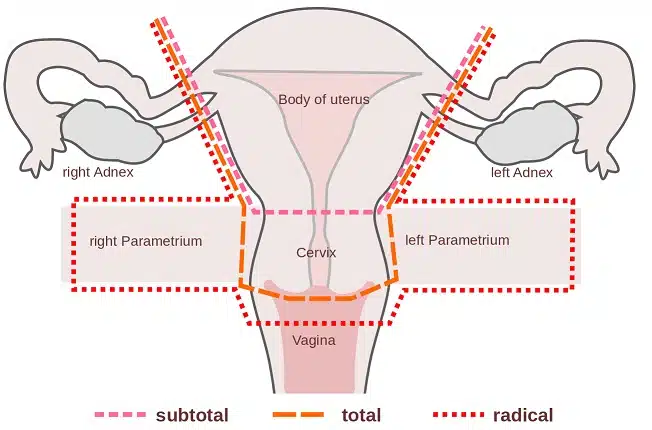
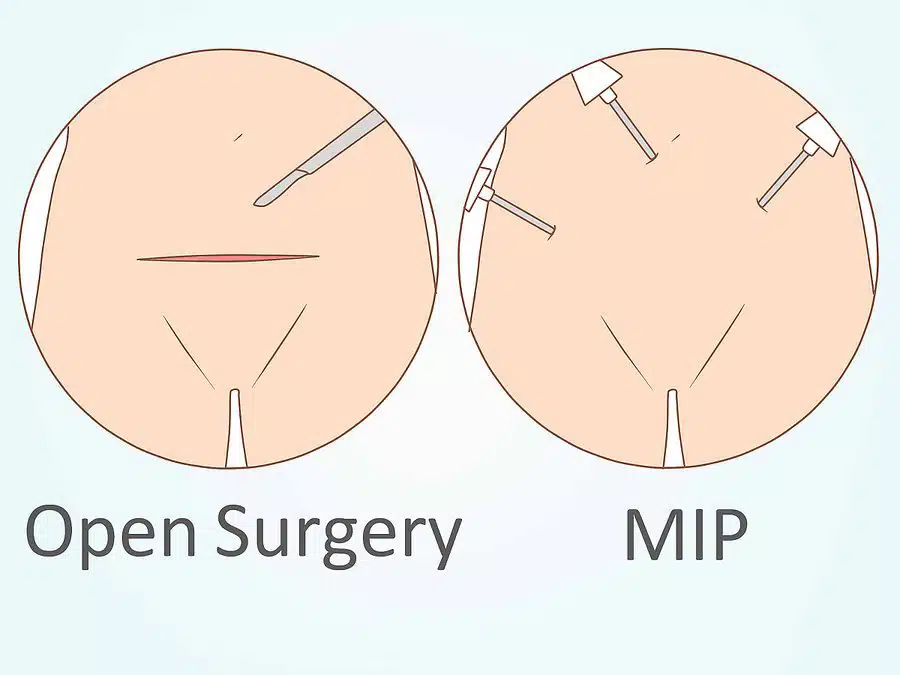
Open Surgery Hysterectomy
An abdominal hysterectomy is an open surgery. This is the most common approach to hysterectomy, accounting for about 54% for all benign disease. To perform an abdominal hysterectomy, a surgeon makes a 5- to 7-inch incision, either up-and-down or side-to-side, across the belly. The surgeon then removes the uterus through this incision. Following an abdominal hysterectomy, a woman will usually spend 2-3 days in the hospital. There is also, after healing, a visible scar at the location of the incision. hysterectomy cost
MIP Hysterectomy
There are several approaches that can be used for a MIP hysterectomy:
- Vaginal hysterectomy: The surgeon makes a cut in the vagina and removes the uterus through this incision. The incision is closed, leaving no visible scar.
- Laparoscopic hysterectomy: This surgery is done using a laparoscope, which is a tube with a lighted camera, and surgical tools inserted through several small cuts made in the belly or, in the case of a single site laparoscopic procedure, one small cut made in the belly button. The surgeon performs the hysterectomy from outside the body, viewing the operation on a video screen.
- Laparoscopic-assisted vaginal hysterectomy: The surgeon uses laparoscopic tools in the belly to assist in the removal of the uterus through an incision in the vagina.
- Robot-assisted laparoscopic hysterectomy: This procedure is similar to a laparoscopic hysterectomy, but the surgeon controls a sophisticated robotic system of surgical tools from outside the body. Advanced technology allows the surgeon to use natural wrist movements and view the hysterectomy on a three-dimensional screen.
- Comparison of MIP Hysterectomy and Abdominal Hysterectomy
Using a MIP approach to remove the uterus offers a number of benefits when compared to the more traditional open surgery used for an abdominal hysterectomy. In general, a MIP allows for faster recovery, shorter hospital stays, less pain and scarring, and a lower chance of infection than does an abdominal hysterectomy.
- With a MIP, women are generally able to resume their normal activity within an average of three to four weeks, compared to four to six weeks for an abdominal hysterectomy. And the costs associated with a MIP are considerably lower than the costs associated with open surgery, depending on the instruments used and the time spent in the operating room. Robotic procedures, however, can be much more expensive. There is also less risk of incisional hernias with a MIP.
- Not every woman is a good candidate for a minimally invasive procedure. The presence of scar tissue from previous surgeries, obesity, the size of the uterus, and health status can all affect whether or not a MIP is advisable. You should talk to your doctor about whether you might be a candidate for a MIP.
Risks of Hysterectomy
Most women who undergo a hysterectomy have no serious problems or complications from the surgery. However, hysterectomy is considered major surgery and is not without risks. Those complications include:
- Urinary incontinence
- Vaginal prolapse (part of the vagina coming out of the body)
- Vaginal fistula formation (an abnormal connection that forms between the vagina and bladder or rectum)
- Chronic pain
- hysterectomy cost
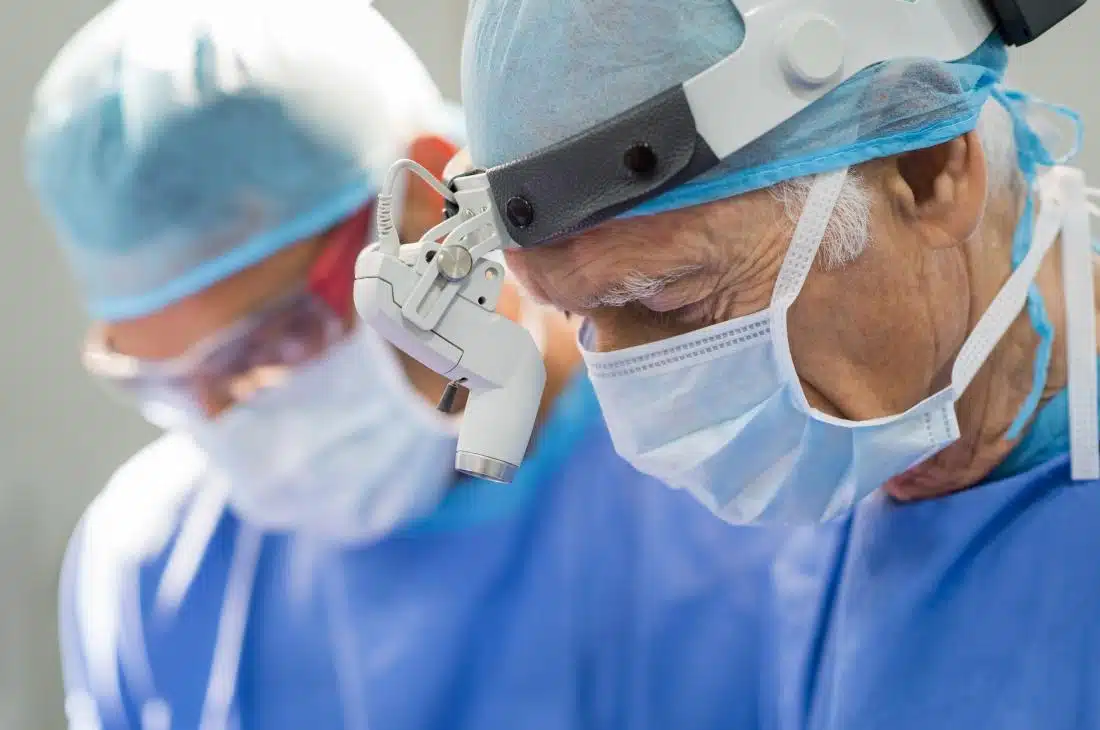
Other risks from hysterectomy include wound infections, blood clots, hemorrhage, and injury to surrounding organs, although these are uncommon.
What to Expect After Hysterectomy
After a hysterectomy, if the ovaries were also removed, a woman will enter menopause. If the ovaries were not removed, a woman may enter menopause at an earlier age than she would have otherwise. Most women are told to abstain from sex and avoid lifting heavy objects for six weeks after a hysterectomy. After a hysterectomy, the vast majority of women surveyed feel the operation was successful at improving or curing their main problem (for example, pain or heavy periods). hysterectomy cost.
About TebMedTourism company
TebMedTourism Company is an International healthcare facilitator based in Tehran, Iran. We start our professional activity in medical tourism industry regarding the profound capability of Iran in both healthcare & touristic fields. We are ready with open arms to provide desirable services to our dear patients & guests from all over the world to enjoy world-class treatment quality and highly skilled doctors in Iran. TebMedTourism company is cooperating with more than 40 internationally certified hospitals, 140 selected local hospitals, 300 specialized medical centers, 430 doctors, 112 hotels, domestic and international airlines in Tehran, Shiraz, Mashhad, Tabriz, Qom and other cities in Iran. TebMedTourism team facilitates comprehensive medical & cosmetic packages in all medical & wellness & touristic fields aimed to achieve your desires. TebMedTourism experienced team will make this procedure seamless and enjoyable from A to Z, so you will just focus on your recovery.







